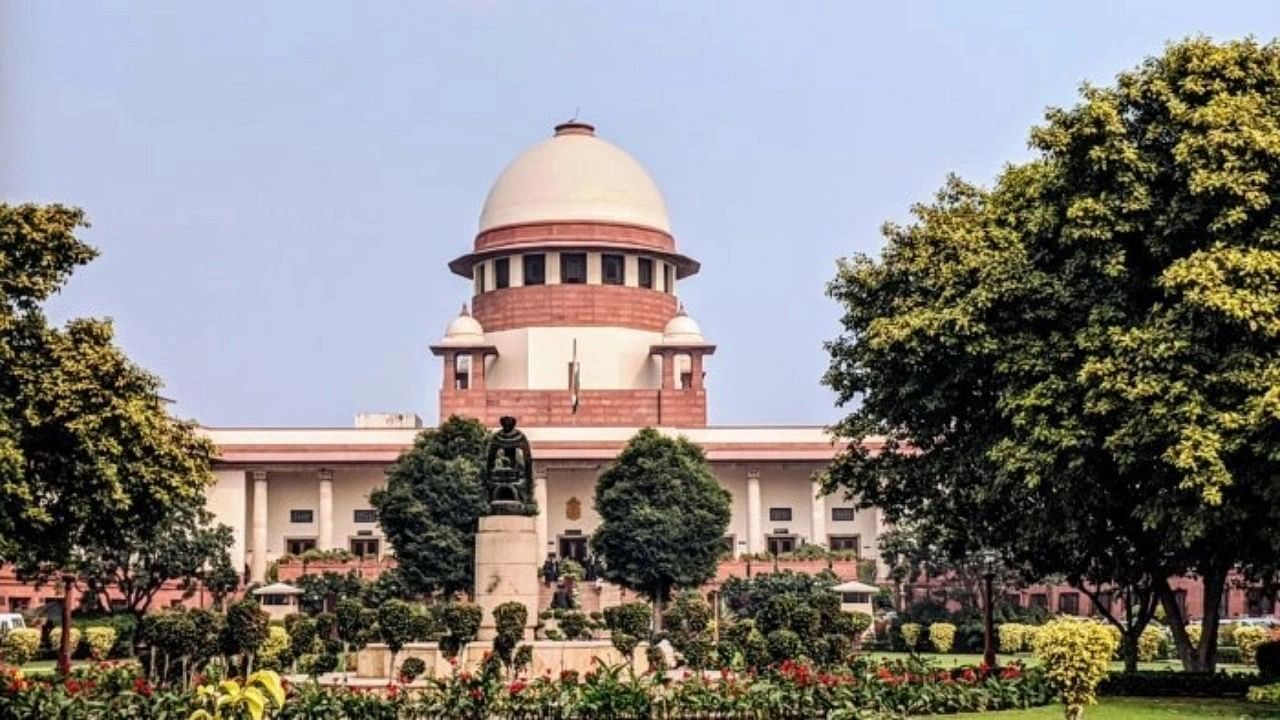
The Supreme Court of India.
Credit: iStock Photo
New Delhi: The Supreme Court on Friday decided to consider on January 4 a habeas corpus petition filed through the next of friend of Nikhil Gupta, who was arrested in the Czech Republic in June on suspicion of hatching an international plot to to kill Khalistani sympathiser Gurpatwant Singh Pannun.
A bench of Justices Sanjiv Khanna and S V N Bhatti Khanna, however, said, "This is an extremely sensitive matter for any Ministry to come in and it is for them to decide".
“You have gone to high court and got certain papers and documents," the bench told senior advocate C A Sundaram, appearing on behalf of Gupta.
Sundaram asked the court to consider having the matter in chambers on the next date.
He said that he is making this suggestion as a counsel, not as a party.
“We'll see on the next date,” the bench said.
During the hearing, the bench also told the counsel, "The person who is detained has not given his affidavit. You have to go before the court concerned."
The court, however, deferred the hearing to January 4, 2023, saying it hardly had time to read the files.
The plea sought the intervention of the Indian government to release him from prison in the Czech Republic.
It said the petitioner urgently moved the apex court seeking relief in a matter fraught with complexities.
He sought a direction in the nature of a habeas corpus and to the Ministry of External Affairs, the Ministry of Home Affairs and Embassy of India at Czech Republic to immediately trace and produce him, as he is currently in detention/custody at Pankarac prison in Prague, Czech Republic.
The plea also sought a direction to the Union government to intervene in the extradition proceedings pending before Extradition Court in Prague, Czech Republic to ensure that he guaranteed a fair and transparent trial.
It contended that the genesis of the petitioner's predicament dates back to June 30, 2023, when he was "illegally detained" at Prague Airport in the Czech Republic.
He claimed his solitary confinement is in grave violation of his fundamental rights.
The petitioner, a devout Hindu and vegetarian, claimed that he was subjected to forced consumption of beef and pork during his detention in Czech custody in direct violation of his religious beliefs. He also contended that he was denied consular access, the right to contact his family in India, and the freedom to seek legal representation.
“From the outset, the petitioner contends that the circumstances surrounding his arrest were marked by irregularities, with no formal arrest warrant presented, and the apprehension executed by self-claimed US agents rather than local Czech authorities,” his plea alleged.
Emphasising the "political nature" of the case, the petitioner highlighted the second unsealed superseding indictment dated November 29, 2023.
“The document, emanating from the United States District Court, Southern District, New York, shifts the narrative away from the petitioner and implicates an alleged Indian government employee, referred to as "CC-1", " it stated.
According to the petitioner, this marks a significant departure from the initial charges and transforms the case into a diplomatic and political quagmire between India and the United States.
"The petitioner positions himself as a hapless victim caught in the crossfire, urging the court's intervention to navigate this intricate web of international relations and secure his rights," the plea said.
The petitioner contended that he has no roots in the United States and questioned the veracity of the narrative presented in the second unsealed superseding indictment.
“He underscores the absurdity of the notion that the Indian government would engage him in alleged covert operations and assassinations on US soil when he has no connections or business in the country,” the plea said.
"Since June 30, 2023, he has been in illegal custody of the Czech authorities, facing an alleged political vendetta between the US and Indian governments," the plea added.
He argued that the extradition proceedings initiated in Prague have been marred by procedural failures, highlighting the absence of an arrest warrant, lack of fair representation, and denial of basic rights, rendering the trial anything but fair.
“Highlighting an immediate threat to life, the petitioner draws attention to the alleged victim's notorious status as a declared terrorist in India. Expressing fear for his own life, the petitioner underscores the influence of the US on the Czech authorities, posing a reasonable apprehension about his safety in Czech prison,” the plea said.
